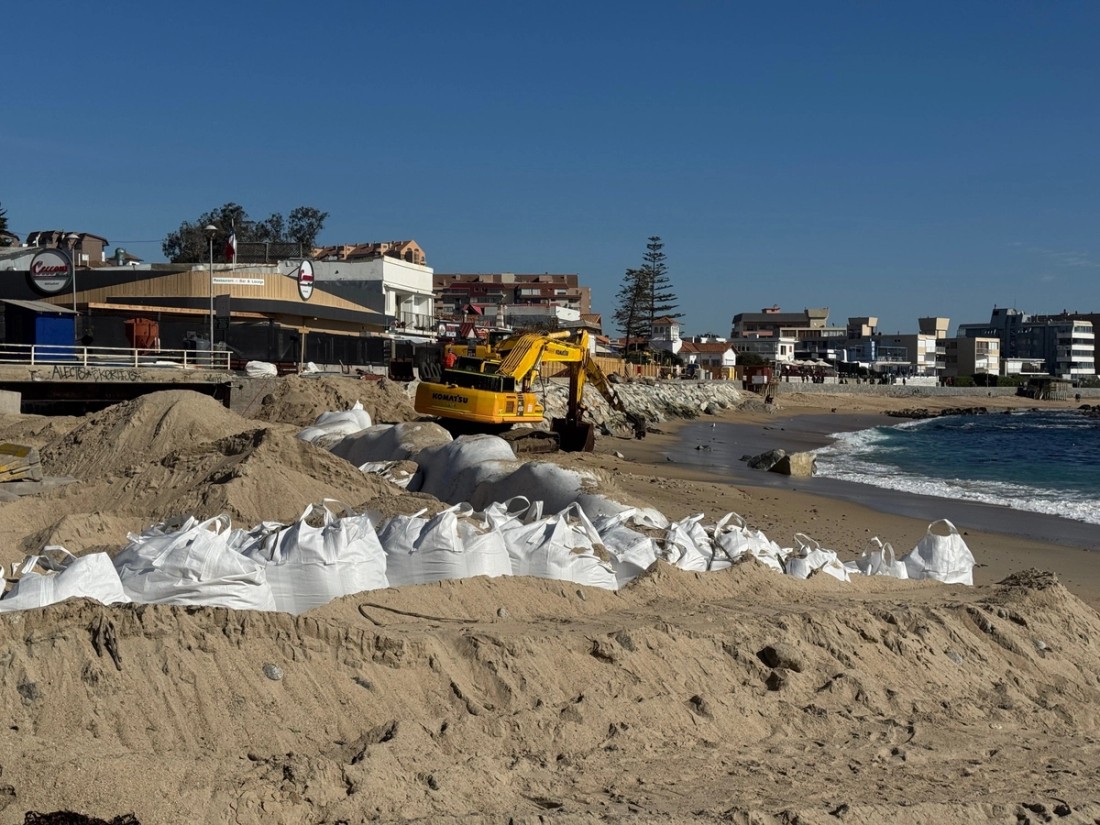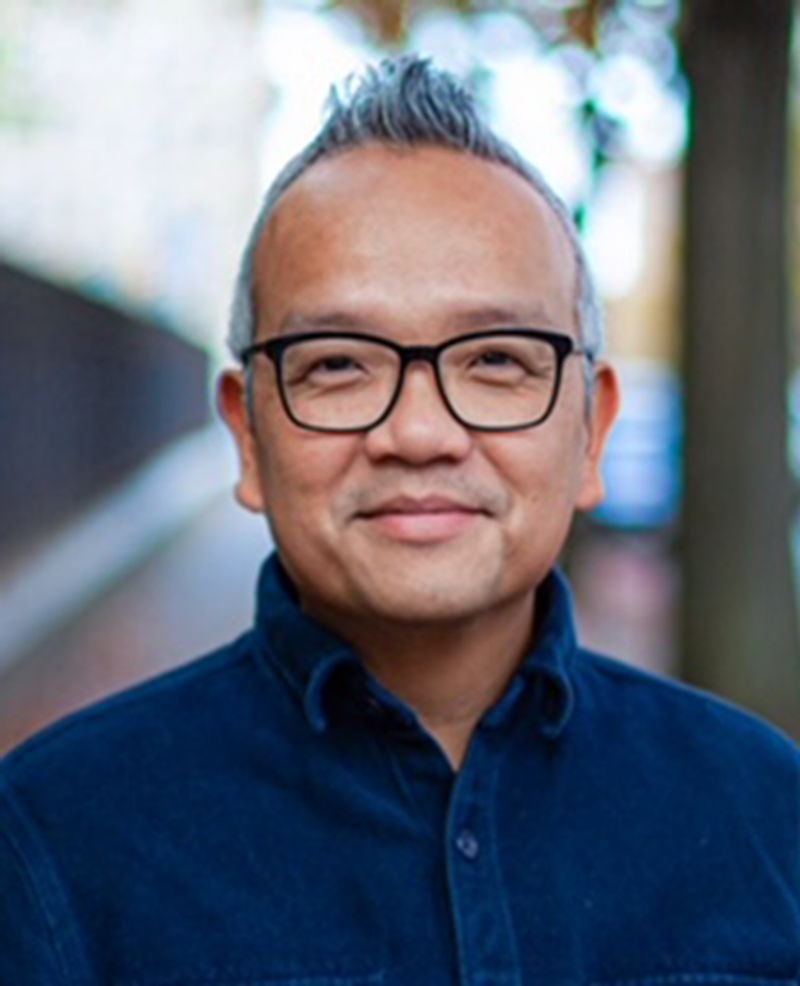How to Tell the Story: Columbia Journalism Professor Investigates Land Erosion in Chile

While visiting Chile for a workshop on documentary storytelling, Columbia Journalism School's Dean of Academic Affairs and Professor of Professional Practice helps local students show how climate change is affecting the seaside country's coastline.
Algarrobo is on the coast of Chile, about 90 minutes west of Santiago. This seaside town resembles many vacation spots – there are stalls of sugary snacks, arcade games, and endless restaurants serving up fresh seafood. But sadly, like many other coastal communities, Algarrobo is facing devastating change. Its coastline is eroding faster than the locals can build new barrier walls.
I visited Algarrobo on the last day of my week-long trip to the Columbia Global Center in Santiago. I had come to teach a workshop in documentary storytelling for local climate journalists, to reconnect with my colleagues at the center, and to build new relationships at the journalism school at Diego Portales University. But, as a documentary filmmaker who focuses on environmental issues, my main goal was to see how climate change was affecting the country’s famously long coast.

I only spent a day in Algarrobo, but it was likely the most important day of my trip. Antonio Campana, the director of the Global Center, and I walked along the beach. Engineers were digging 20-foot ditches to build a new retaining wall to hold back the hungry waves. Antonio vacations with his family in Algarrobo and was struck by how much the beach had shrunk since their last visit just the year before. At least 15 feet had been swallowed by the ocean. I was stunned by how familiar this site was to me. This type of land erosion was happening everywhere else I had reported: Louisiana, the Mid-Atlantic, New England, Asia. The problem is global and unrelenting.
But, in this crisis, Antonio and I saw an opportunity. I teach documentary filmmaking at the Columbia Journalism School, and I knew that my students could tell this story. Importantly, I knew that the students at Diego Portales could provide much needed local information and context. My students could – must – work with the Diego Portales students to co-produce and direct documentary films about coastal erosion in Chile.
It is no easy task for two universities and a center to collaborate, but the stakes are too high to not try. Starting next year, I hope to pilot a class where my video journalism students will partner with a select group of Diego Portales students for a semester-long course. They will first meet online. They will be taught how to film, edit, and report on climate change. And then, the groups will meet in Santiago and then head to Algarrobo to make films about the threat to this community and to the world.
Duy's workshop in Chile is part of a groundbreaking collaboration that shows how Columbia Global Centers can help facilitate partnerships between Columbia faculty and universities throughout the world. This effort will continue in October, when a group of journalism students and professors from Chile will travel to New York to visit Columbia, participate in classes and meet professors.
Duy Linh Tu is the Columbia Journalism School's Dean of Academic Affairs and Professor of Professional Practice. He teaches reporting and video storytelling courses focused on visual narratives in contemporary journalism through discussions, academic teachings and practical exercises.
His work has appeared in print, online, on television, and in theaters. He is also the author of Feature and Narrative Storytelling for Multimedia Journalists (Focal Press).